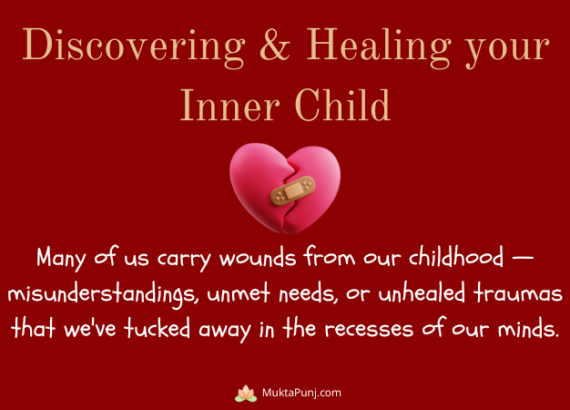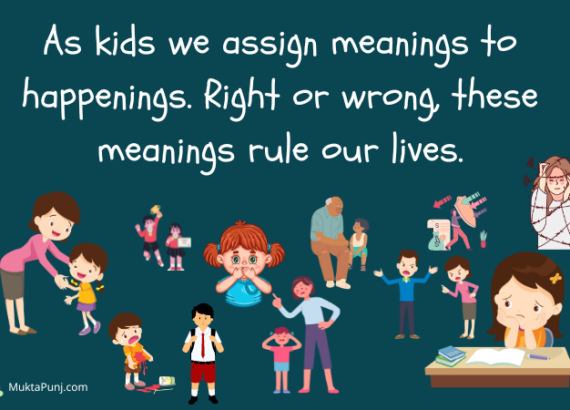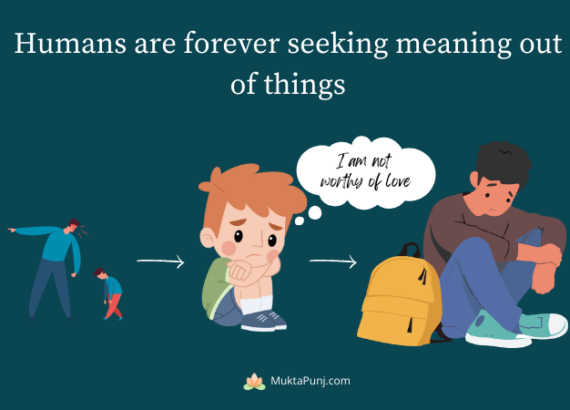Meaning-Making Habit of Humans: The Consequences

Why do we seek meaning in everything?
Humans are meaning-making creatures. The search for meaning has been a central thread in our lives since the beginning.
Inner Child psychologists believe that this quest begins at birth and continues until maturity, moulding our personalities and mental landscapes.
But what happens if the meanings we make do not reflect reality? What impact do they have on our personal development, relationships, and self-perception?
Formation of Meaning: A Child’s Perspective
Significant moments in our childhood have a way of shaping the narratives of our lives – Carl Jung
This sentiment is consistent with the premise that humans are constantly interpreting their surroundings since birth.
When a child observes their distressed mother, they may believe that they are the source of her distress. This interpretation, whether right or not, has a significant impact on the child’s emotional development and future interactions.
The Consequences of Misinterpreted Meanings
Our personality and mental makeup are built on the understanding we attribute to our experiences, including those that are misinterpreted.
↳ Anxious attachments can arise when a youngster believes they are the source of their mother’s stress.
↳ A child might grow up neglecting their own needs, having drawn the conclusion that their desires lead to the discomfort of their loved ones.
Every adult contains a kid — an immortal child, something that is always becoming, never complete, and requires constant care, attention, and teaching. That is the part of the human personality that wants to grow and become complete – Jung observed.
Reframing and Understanding our Meanings
The process of comprehending and possibly altering these meanings is critical for emotional and psychological development.
Understanding how these early interpretations influenced us can help us develop healthier ways of thinking and interacting with others.
It requires us to analyze and, if required, rethink the ideas and perceptions we have assigned to our experiences.
Read this ➤ 3 examples where the child has drawn a wrong meaning out of happenings/ caregivers / parents around him which ultimately form a limiting belief in him and which then limit his progress in life.
The Function of Psychoanalysis in Going to the Root of things
Psychoanalysis provides a way to investigate these deep-seated meanings.
Individuals can use the therapeutic process to discover the sources of their manufactured meanings and understand their influence. They can then work toward establishing a story that promotes growth rather than limit their progress in life.
Psychoanalysis helps in the exploration of the inner world, where meanings are created and re-constructed.
Key Take-away: The Lifelong Quest
Our search for meaning is an ongoing adventure.
It changes as we grow, allowing us to get fresh perspectives and interpretations of our experiences.
Recognizing that some of the meanings we’ve created may be based on incorrect interpretations is the first step toward emotional well-being and healthy relationships.
The hunt for meaning, then, is about understanding the questions we’ve been asking all along, rather than merely finding solutions.
Food for thought:
Do you have any idea how many of your crucial life-decisions are based on the meanings that you formed as a child?
Do you think that all those meanings have indeed been helpful?










